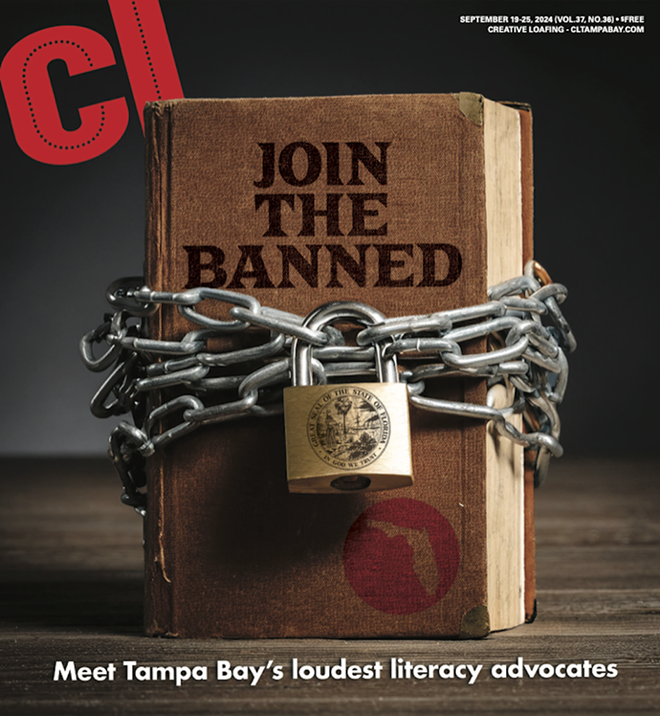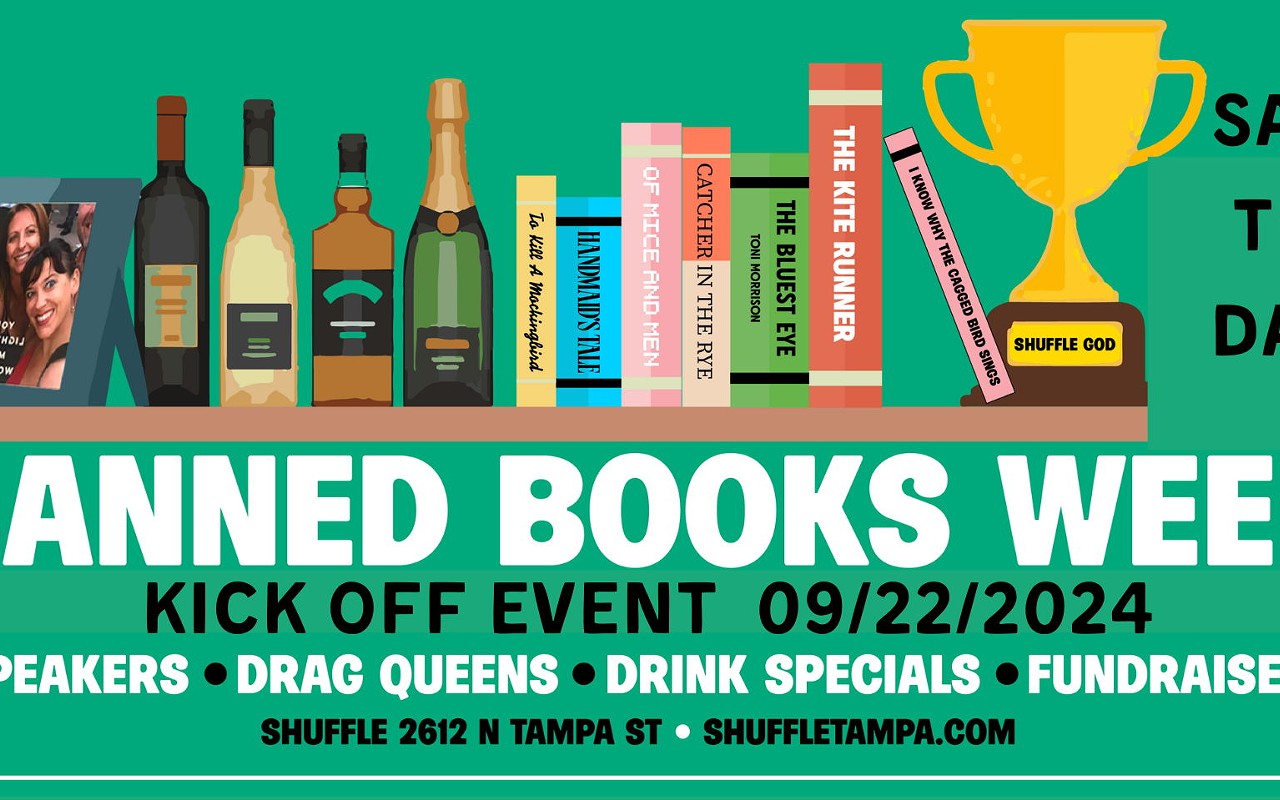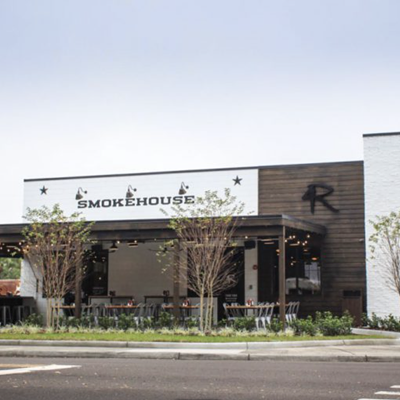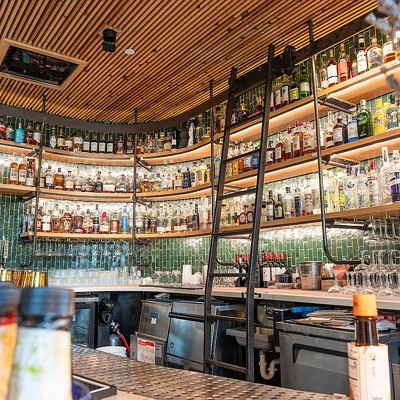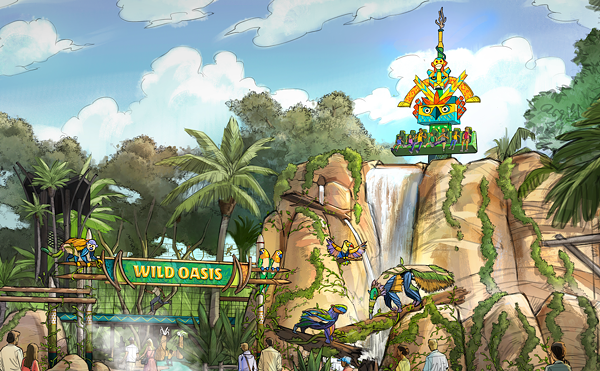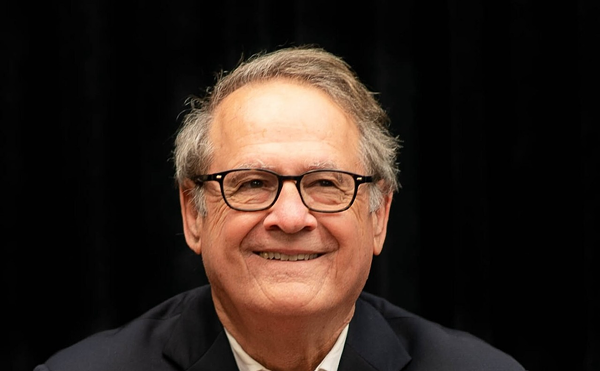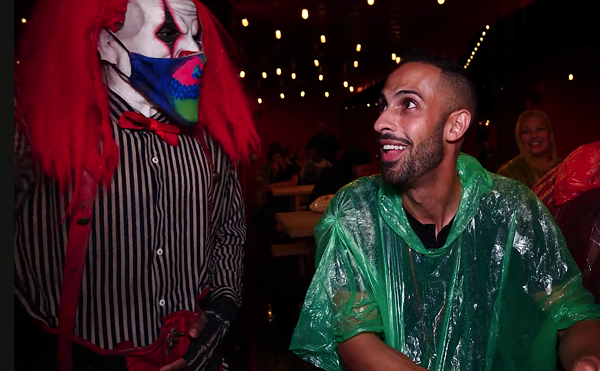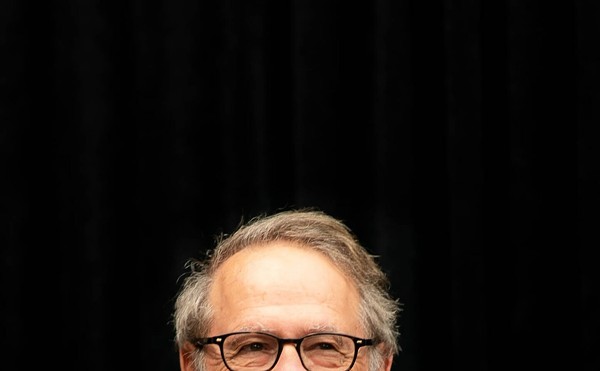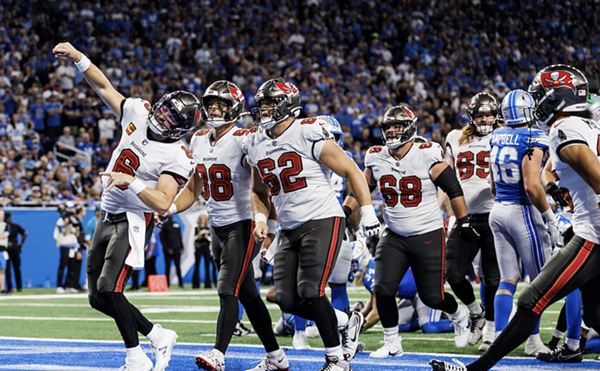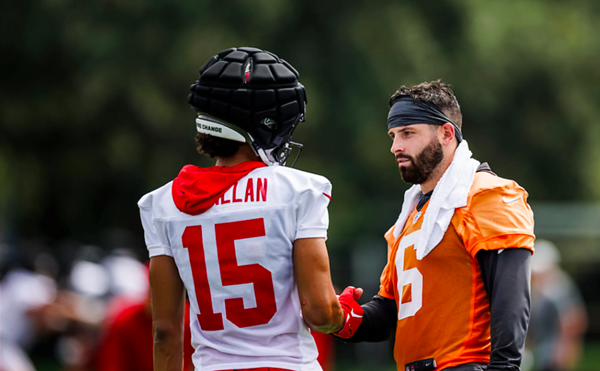“You don’t get to decide that everybody has to eat what you want to eat. Everybody gets to choose…all the options should be there, and somebody is monitoring to make sure that the food is not poisonous, which is the media specialist,” said Rachel, who goes by Reads with Rachel on social media.
Rachel—did not want to share her last name for safety—is part of a growing community of local parents and readers fed up with the spread of fear-mongering misinformation about books. They’re fed up with seeing books by LGBTQ and BIPOC authors with diverse stories challenged by groups like Moms for Liberty under the guise of “protecting children.” And they’re fed up with that group’s members trying to instill fear in parents with out-of-context or blatantly false information about what public school children have access to in the library.
“I find it kind of disgusting because I’m being lied to about why they’re doing it,” Rachel said. “You are prescribing your feelings onto other people, which is not how literature works.”
Moms for Liberty, labeled a far-right extremist group by the Southern Poverty Law Center, has active chapters in Pinellas and Hillsborough counties. While touting “preserving parental rights,” it’s waged aggressive campaigns to fill school boards with their members—often backed by Gov. Ron DeSantis. The Moms For Liberty agenda centers on clearing shelves and curricula of anything the group deems inappropriate—often books and lessons on race, gender and sexuality.
Many of the governor-endorsed candidates for school boards lost in August’s primary, but others are headed for runoffs this fall. In Hillsborough, incumbent Democrat Lynn Gray will face Republican challenger Karen Bendorf.
Pinellas County’s District 5 features runoff between Katie Blaxberg and Stacy Geier; both are Republican, but the governor and other notable conservatives have endorsed Geier.
Rachel shares her righteous outrage over local book banners to nearly 100,000 followers on Tiktok and YouTube. Some of her most-watched videos are of her speaking at Hillsborough School Board meetings. One shows her calling out the “local moms for ‘liberty’ weirdo” who kept going to meetings to challenge books at schools her kids do not attend. Another shows her reading graphic material from the Bible to point out the hypocrisy of banning “This Book is Gay” by Juno Dawson.
“If ‘This Book is Gay’ violates (Florida statute) 847.001 then so does the Bible, yes? That is my point,” she said.
The number of books challenged each year has surged since 2020, fueled by toxic extremist politics and cultural upheaval. Both produced new, restrictive laws on the books in red states like Florida. According to the American Library Association, more than 4,000 books were targeted last year. The ALA’s data-fueled heat map shows Florida had 33 attempts to restrict access to books with over 2,600 titles in those challenges.
Despite another record year for book bans in 2023, there are sparks of hope for the future of literacy. Last March, the Florida legislature passed a one-per-month limit on “frivolous” book challenges; last week in Nassau County, a settlement led to the restoration of 36 books previously challenged and pulled from campus libraries. Some glimmers have even popped up here in Tampa Bay.
“There is such a sense of unity among us with actively enrolled kids that we are there advocating for…there is a bond that forms among us that is really encouraging,” Rachel said. “There’s a stark contrast between people who advocate for the removal of books based on no evidence versus people who are parents advocating for their kids with non-hypothetical issues who say ‘books aren’t fucking up my kid, policy is.’”
One group fighting to protect students’ access to books is the Florida Freedom to Read Project (FFTRP). The nonprofit organization grew out of concern about coordinated challenges to books in Orange County schools in 2021. One of its founding members, Reagan Miller, raisestwo children in Pinellas County schools.
FFTRP’s mission is to support and protect the rights of students, parents, teachers and media specialists. It operates locally and shares resources with other parent-led groups across the state. FFTRP also supports school district leaders by holding them accountable to “keep every decision student-centered, especially as they face the ‘Parents’ Rights’ movement.”
“We also decided that we did not ever want to be the antithesis to Moms for Liberty,” Miller said. “We don’t want to cause problems for the district. Our goals are to elevate local voices and do good and do what it takes to keep books on the shelves.”
FFTRP is a collection of true grassroots efforts—from joining local groups to fight for the inclusion of the Essential Voices Collection in Duval County to calling out the absurdity of people without children in public schools trying to ban books. The group keeps tabs on school districts across Florida and provides guidance for anyone interested in advocacy in their community.
Miller said their approach is about protecting kids’ right to access books they want and need. In its tips to address censorship, FFTRP pushes erring on the side of education, writing“banning a book based on its parts rather than the entirety of the work reinforces ignorance over critical thinking.”
Like the analogy of a library as a buffet, the group firmly believes in parental rights for their own children—“but not all children.”
“You have the right to opt your child out of any library access,” Miller said. “You can say, ‘I don’t want my kid to have access to this section. I don’t want my kid to have access to this book. Anytime my kid checks out a book, I want an alert or I want somebody to tell me what my kid is looking at.’ You have the right, and that’s always been in place. And that’s something people don’t understand.”
In Miller’s experience as a parent and an advocate, most families trust their child’s teachers and media specialists. They are also more concerned about the safety and well-being of their children and the dwindling resources public school provides.
“Why do I trust my media specialist? Because I interacted with her just like I interact with my kids' neurologist; I did my job as a parent,” Rachel said. “(Book banners) have decided to make all of these media specialists in this county like faceless boogeymen instead of a literal public school worker that every parent can interact with.”
Rachel and Miller have worked with their respective media specialists to get their kids reading material that’s right for them. For Rachel, that was letting them know her oldest can’t read “Bridge to Terabithia” and her youngest doesn’t like anything with zombies. For Miller, that was navigating her daughter’s fear of reading books with death and an assignment with a Sherlock Holmes novel.
“Do you really think we’re sitting here very patiently, in this car line, while inside our kids are being indoctrinated and given pornography?” Miller said, explaining the lengthy car line she volunteers in every day at her son’s school.
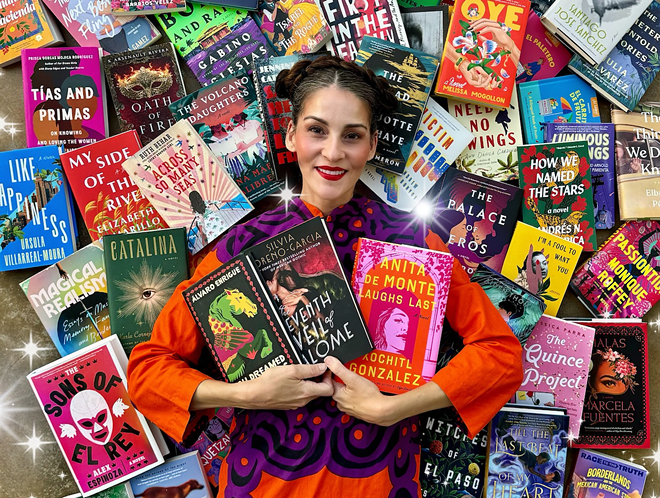
For Carmen Alvarez, a native Tampeño, book bans in local schools have a ripple effect on reading access across the country and the publishing industry.
“As books are banned, one school district will copy what another one did; they will copy and copy and copy. So these books aren’t making it to bookshelves, which is one of the biggest sellers for books,” she said.
Alvarez has built her Tomes and Textiles brand by sharing her passion for reading with her nearly 1000,000 followers on TikTok and Instagram. Over the last nine years, she’s learned a lot about how book challenges and social media influence the publishing industry.
“Publishing follows trends, and if those books aren’t being bought en masse, they’re (publishers) not going to purchase as many queer stories and bring those to light, and it’s going to create this scarcity at some point on shelves,” she said.
When she’s not shouting about LatinX books and reviewing the latest Syliva Moreno Garcia novel, Alvarez keeps tabs on local literacy efforts, including volunteering on the Hillsborough County Public Library Board. She also attends and speaks at school board meetings alongside other families and organizes a local Banned Book Club for Ferocious Floridians.
A big part of Alvarez’s advocacy is educating readers on what it means to be a banned book. Banned books are not a genre, and the point of Banned Books Week—organized by ALA—is to draw “national attention to the harms of censorship.” The weeklong holiday, running Sept. 22-28 this year, calls out efforts to restrict or remove books and provides resources and support to readers, educators, publishers and booksellers.
“It’s not a point of pride to call it a banned book,” Alvarez said. “Banned books exist, and we should read them, but we also should try to make it so that banned books don’t exist. We don’t necessarily want to have Banned Books Week because we just don’t want to have banned books.”
Event Details
To celebrate the start of Banned Books Week, Alvarez teamed up with Shuffle for a community outreach event on Sept. 22 in Tampa. There will be banned book-themed menus, a silent book club gathering, “blind date with a book” offerings, drag queen story time, guests from Florida Freedom to Read and Hillsborough County Public Libraries and the opening of a new banned book little free library.
“Come hang out with your family and with us all day and learn a little bit about banned books and what you can do to fight,” Alvarez said.
Then on Oct. 10, Alvarez will be an ambassador for Penguin Random House at The Lynx Books in Gainesville for the publisher’s Banned Wagon tour. Florida author Lauren Groff opened the bookstore earlier this year as a hub for banned books and diverse stories.
Fighting book bans can be daunting. And there’s a level of fear that comes with calling out the performative lies and disinformation spread by a small but vocal group hellbent on applying their beliefs to all public school children.
But there are ways to fight book bans and advocate for greater access to essential, diverse stories.
“There are a lot more people who do not want to ban books than there are book banners, and we cannot let them demoralize us and keep us from advocating,” Alvarez said.
Alvarez and FFTRP encourage writing to your local school board and news outlets to share concerns about book challenges. Reading and sharing banned books on social media is impactful, but getting comfortable advocating with friends and family is even more important.
Beyond banned book clubs and engaging in critical discussion with challenged books, Rachel emphasizes the importance of “getting the right people in office.”
“The best thing you can do is vote and keep uplifting actual students and parents and advocating for the plurality of students,” she said. “There are so many students…of all religions, all backgrounds. These kids are in a coming-of-age time where they are thinking about gender and sexuality, as we all did in high school. So making a place that is safe for everybody is really important.”
There's no cover for the Banned Books Week kickoff happening Sunday, Sept. 22 from noon-6 p.m. at Tampa Shuffle.Subscribe to Creative Loafing newsletters.
Follow us: Google News | NewsBreak | Reddit | Instagram | Facebook | Twitter

